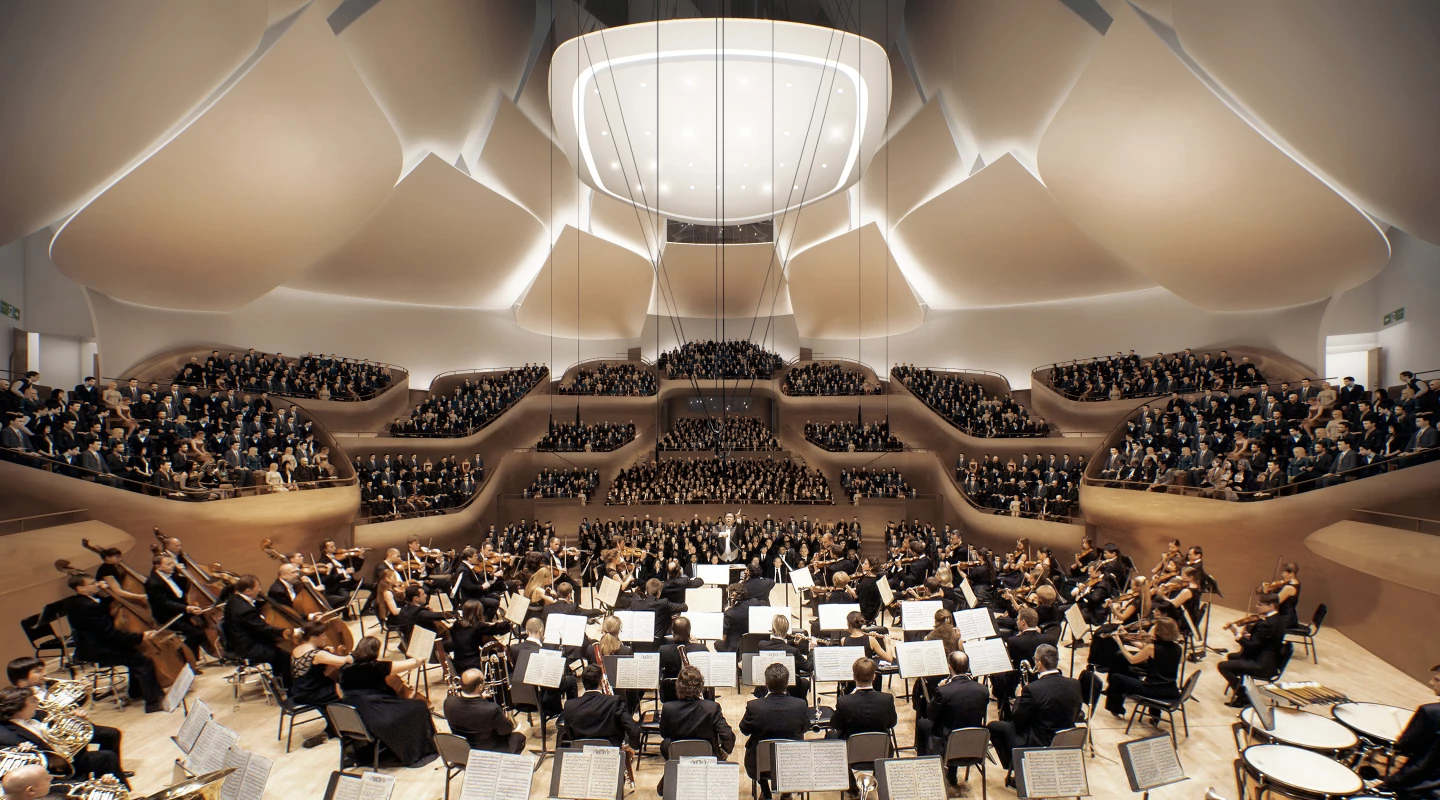Nine years after being commissioned, MAD Architects is finally nearing completion on its China Philharmonic Concert Hall in Beijing. The ambitious project shows the firm on fine form and is defined by a glowing translucent exterior that's meant to be reminiscent of a piece of white jade.
The China Philharmonic Concert Hall measures 26,587 sq m (over 286,000 sq ft) and reaches a height of 24 m (almost 80 ft). Structurally, it consists of a steel framework, with the facade made up of embossed white glass. Lighting is installed under the glass, on the main steel structure, to lend it a softly glowing appearance from outside at night, while its translucent facade allows daylight to filter inside. It will also be topped by a partially green roof.
"The music venue consists of a main concert hall and rehearsal spaces split between two floors," explained MAD, which is certainly no stranger to producing striking music venues. "Surrounded by a lotus pond and greenery that will be open to the public, the architecture is defined by a fluid and translucent facade reminiscent of a piece of jade. Daylight is diffused through the translucent white curtain wall into the lucid space. At the center of the soaring lobby, a grand spiral staircase connects the curvilinear hallways to provide a dynamism akin to the flow of music."

The 1,600-seat grand concert hall is organized in vineyard style (with sloping terraces and rows situated close together). White sound reflection panels on the ceiling, inspired by lotus flowers, are optimized to make the music appear mellow and pleasant, while the organ, by Canadian company Casavant Frères, is composed of 88 pipes, with the different heights and mouth positions of the pipes designed to give the appearance of a field of bamboo. The secondary smaller concert hall will be used for rehearsals and is more intimate, hosting just 350 seats.
The building's exterior is almost complete, while work continues on the interior. It's expected to be fully finished sometime in 2024 and will become the first permanent residence for the China Philharmonic Orchestra.
Source: MAD










